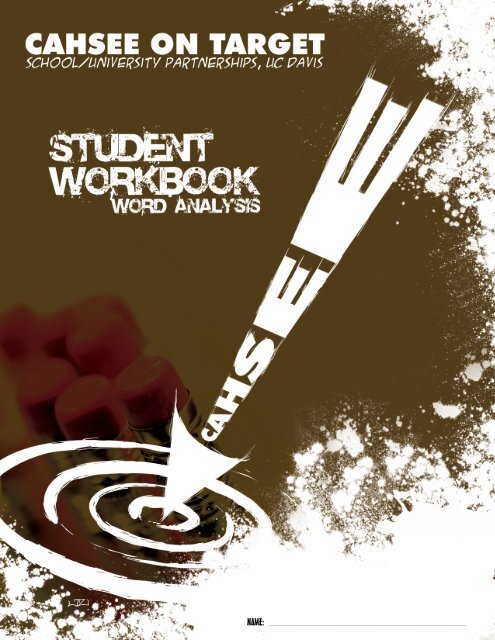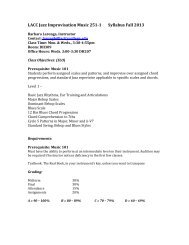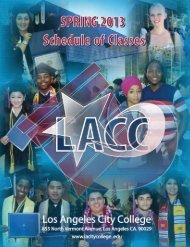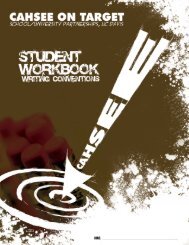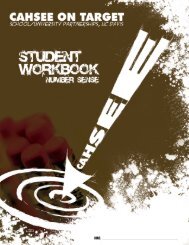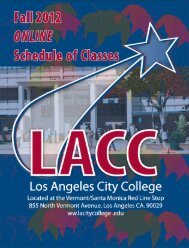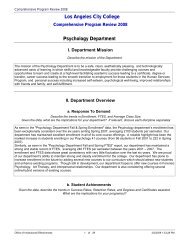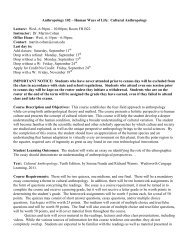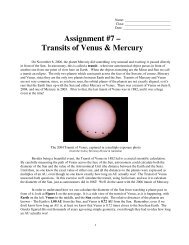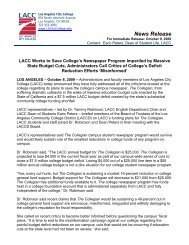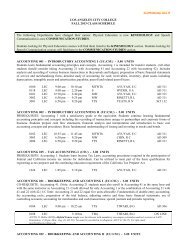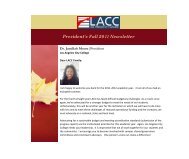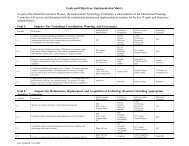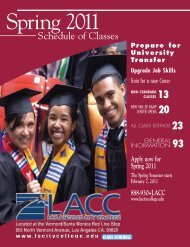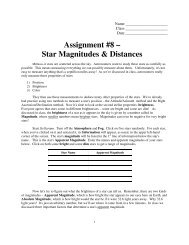Word Analysis - Student Workbook
Word Analysis - Student Workbook
Word Analysis - Student Workbook
You also want an ePaper? Increase the reach of your titles
YUMPU automatically turns print PDFs into web optimized ePapers that Google loves.
CAHSEE on Target<br />
UC Davis, School and University Partnerships<br />
CAHSEE on Target<br />
English Language Arts Curriculum<br />
Published by<br />
The University of California, Davis,<br />
School/University Partnerships Program<br />
2006<br />
Director<br />
Sarah R. Martinez, School/University Partnerships, UC Davis<br />
Developed and Written by<br />
Syma Solovitch, School/University Partnerships, UC Davis<br />
Reviewers<br />
Jennifer Osborne, UC Davis English Graduate<br />
Faith Paul, School/University Partnerships, UC Davis<br />
Linda Whent, School/University Partnerships, UC Davis<br />
Sarah Rees, School/University Partnerships, UC Davis<br />
Design and Layout<br />
Bo Botelli, Publications Coordinator<br />
Jack Zhang, Publications Assistant<br />
Advising Services, UC Davis<br />
The CAHSEE on Target curriculum was made possible by<br />
funding and support from the California Academic Partnership Program,<br />
GEAR UP, and the University of California Office of the President.<br />
We also gratefully acknowledge the contributions of those teachers<br />
and administrators at Sacramento High School and Woodland High School<br />
who piloted the CAHSEE on Target curriculum.<br />
© Copyright The Regents of the University of California, Davis campus, 2005-06<br />
All Rights Reserved. Pages intended to be reproduced for students activities<br />
may be duplicated for classroom use. All other text may not be reproduced in any form<br />
without the express written permission of the copyright holder.<br />
For further information,<br />
please visit the School/University Partnerships Web site at:<br />
http://sup.ucdavis.edu
CAHSEE CAHSEE on on Target<br />
Target<br />
Introduction to the CAHSEE<br />
UC Davis, School and University Partnerships<br />
<strong>Student</strong> <strong>Workbook</strong>: <strong>Word</strong> <strong>Analysis</strong> Strand<br />
The CAHSEE stands for the California High School Exit Exam.<br />
The English Language Arts section of the CAHSEE consists of<br />
72 multiple-choice questions (45 reading items and 27 writing items)<br />
and one essay (accounting for 18% of the section).<br />
The items span across 6 distinct strands:<br />
• <strong>Word</strong> <strong>Analysis</strong>: 7 Questions<br />
• Reading Comprehension (Informational Text): 18 Questions<br />
• Literary Response & <strong>Analysis</strong>: 20 Questions<br />
• Writing Conventions: 15 Questions<br />
• Writing Strategies: 12 Questions<br />
• Writing Applications: 1 Essay (18% of the total score)<br />
What is<br />
CAHSEE on Target?<br />
CAHSEE on Target is a tutoring<br />
course specifically designed for<br />
the California High School Exit Exam<br />
(CAHSEE). The goal of the program is to<br />
pinpoint each student’s areas of weakness<br />
and to then address those weaknesses<br />
through classroom and small group instruction,<br />
concentrated review, computer tutorials and<br />
challenging games.<br />
Each student will receive a separate workbook for<br />
each strand and will use these workbooks during<br />
their tutoring sessions. These workbooks will<br />
present and explain each concept covered<br />
on the CAHSEE, and introduce effective<br />
strategies for reading comprehension,<br />
essay writing, and text revision.
CAHSEE on Target<br />
UC Davis, School and University Partnerships<br />
<strong>Student</strong> <strong>Workbook</strong>: <strong>Word</strong> <strong>Analysis</strong> Strand<br />
What is <strong>Word</strong> <strong>Analysis</strong>?<br />
When we read, we often come upon unfamiliar words. How do we<br />
figure out the meaning? Looking the word up in the dictionary is<br />
one way, but this may not always be convenient or possible (as in a test).<br />
<strong>Word</strong> <strong>Analysis</strong> refers to strategies used to figure out the meaning of<br />
unfamiliar words. In this packet, you will learn seven such strategies.<br />
Strategies for Deducing Meaning<br />
. Context Clues (& Signal <strong>Word</strong>s)<br />
2. Multiple-Choice Strategies<br />
3. Structural Clues<br />
4. Direction<br />
5. Charge<br />
6. <strong>Word</strong> Association<br />
7. Deconstruction<br />
While there are only seven CAHSEE questions that directly test your<br />
word analysis skills, the ability to approximate the meaning of unfamiliar<br />
words is a skill that comes into play whenever we read and will be key to<br />
your success in every CAHSEE strand (including math).<br />
2
CAHSEE on Target<br />
UC Davis, School and University Partnerships<br />
<strong>Student</strong> <strong>Workbook</strong>: <strong>Word</strong> <strong>Analysis</strong> Strand<br />
Vocabulary Strategy 1: Context Clues<br />
Context clues are words in a sentence or paragraph that help the reader<br />
deduce (reason out) the meaning of an unfamiliar word.<br />
A. Types of Context Clues<br />
There are five major types of context clues:<br />
. Synonym Clue: Sometimes an unfamiliar word is used as a synonym<br />
(a word having either the same or similar meaning as another word).<br />
You can infer (figure out) the meaning of the unfamiliar word by replacing<br />
it with the familiar word.<br />
Example: I feel completely satiated; in fact, I am so full that I could not<br />
possibly eat another morsel of food.<br />
“Full” is a synonym for “satiated.” We can conclude that the word “satiated”<br />
means full or satisfied.<br />
2. Comparison Clue: Sometimes an unfamiliar word is used in a comparison<br />
with a familiar word or group of words.<br />
Example: The children huddle around their teacher, like baby chicks<br />
around a mother hen.<br />
The children are being compared to baby chicks around a mother hen;<br />
we can conclude, then, that “huddle” means “crowd together closely.”<br />
Note: The phrase “like baby chicks around a mother hen” is a simile.<br />
A simile is a literary device that uses the words “like” or “as” to describe<br />
one thing by comparing it with another.<br />
3
CAHSEE on Target<br />
UC Davis, School and University Partnerships<br />
<strong>Student</strong> <strong>Workbook</strong>: <strong>Word</strong> <strong>Analysis</strong> Strand<br />
3. Contrast Clue: Sometimes an unfamiliar word may be used in contrast<br />
to a familiar word or group of words. You can infer the meaning of<br />
the unfamiliar word by giving it the opposite meaning of the familiar word.<br />
Example: Unlike Robin, who is full of life, Rachel is lackluster.<br />
The opposite of “full of life” is “empty of life.” The word “lackluster”<br />
is used to contrast Robin and Rachel. We can conclude, then,<br />
that the word “lackluster” means “lacking liveliness.”<br />
4. Explanation Clue: Sometimes an unfamiliar word may be followed<br />
with an explanation, in which a familiar word or group of words is used.<br />
Example: Marsha is insatiable; she can eat all day and never feel full.<br />
Here, the second part of the sentence (“she can eat all day and never feel full”)<br />
is used to explain the first part of the sentence (“Marsha is insatiable”).<br />
We can conclude, then, that “insatiable” means “incapable of being full”<br />
or “incapable of being satisfied.”<br />
5. Example Clue: Sometimes an unfamiliar word may be followed by an example,<br />
in which the familiar word is used.<br />
Example: In college, you can choose courses from a broad range of academic<br />
disciplines, such as history, economics, mathematics, and psychology.<br />
You are probably familiar with the primary (first) meaning of the word<br />
“discipline” - - control. But that doesn’t quite fit in the context of the<br />
above sentence. The word “discipline” also has a secondary meaning;<br />
we can use the context of the sentence to figure out this meaning.<br />
The word is followed by several examples: history, economics, mathematics,<br />
and psychology. (Note: The words “such as” let us know that examples<br />
will follow.) We can conclude, then, that each of these subjects is<br />
an example of a discipline and that the word “discipline” means<br />
“a branch of instruction or learning.”<br />
4
CAHSEE Example<br />
CAHSEE on Target<br />
UC Davis, School and University Partnerships<br />
<strong>Student</strong> <strong>Workbook</strong>: <strong>Word</strong> <strong>Analysis</strong> Strand<br />
. What does delicate mean as used in the following sentence?<br />
Now more than 00 years old, many of Andersen’s delicate paper cuttings<br />
still exist in a museum in Denmark devoted to his work.<br />
A. thin<br />
B. fragile<br />
C. creative<br />
D. old<br />
Passage: “The Remarkable Paper Cuttings of Hans Christian Anderson”<br />
Source: California Department of Education, 2004<br />
In the example above, underline your clue words.<br />
What is the correct answer?<br />
Context Clues in Surrounding Sentences<br />
Sometimes the clues to a word’s meaning are not found in the same sentence. You must<br />
read a few sentences before and/or after the sentence in which the word appears.<br />
Read the following passage and underline all of the words that provide clues to the<br />
meaning of “institutions.”<br />
California has many educational institutions that have been affected by the recent<br />
state budget cuts. Its public universities have been badly hit and will need to<br />
increase tuition. In addition, next year’s funding for elementary, middle, and high schools<br />
has been cut significantly.<br />
Meaning of institution: _____________________________________________________<br />
5
B. Signal <strong>Word</strong>s<br />
CAHSEE on Target<br />
UC Davis, School and University Partnerships<br />
<strong>Student</strong> <strong>Workbook</strong>: <strong>Word</strong> <strong>Analysis</strong> Strand<br />
Context clues often follow “signal words and phrases.” These alert<br />
or “signal to” the reader that an important clue is coming.<br />
Pay attention to these words when you are reading; they will help<br />
you figure out the meaning of unfamiliar words.<br />
Let’s reexamine an earlier example:<br />
Example: In college, you can choose courses from a broad range<br />
of academic disciplines, such as history, economics, mathematics,<br />
and psychology.<br />
In the sentence above, the phrase “such as” signals to the reader<br />
that examples of academic “disciplines” will follow. Even if you<br />
are unfamiliar with the meaning of an academic “discipline,”<br />
you are probably familiar with all of the examples (history, economics,<br />
mathematics, psychology). You can therefore conclude that a “discipline”<br />
is a branch of instruction or learning.<br />
Example: The Sacramento Bee is a quotidian publication because<br />
it is put out every day.<br />
In this sentence, “because” is a signal word. It alerts the reader<br />
that an explanation follows. Here, the words “every day” define<br />
the word “quotidian.”<br />
Example: Unlike Robin, who is full of life, Rachel is lackluster.<br />
In this sentence, “unlike” is a signal word. It lets the reader know<br />
that “lackluster” can be contrasted with “full of life.”<br />
6
CAHSEE on Target<br />
UC Davis, School and University Partnerships<br />
<strong>Student</strong> <strong>Workbook</strong>: <strong>Word</strong> <strong>Analysis</strong> Strand<br />
Signal <strong>Word</strong>s for Comparison (or Synonyms)<br />
• and<br />
• such as<br />
• like<br />
• similar to<br />
Signal <strong>Word</strong>s for Explanation<br />
• because<br />
• because of<br />
• since<br />
• in other words<br />
Signal <strong>Word</strong>s for Contrast<br />
• however<br />
• although<br />
• though<br />
• despite<br />
• but<br />
• in contrast to<br />
• rather<br />
• unlike<br />
• on the other hand<br />
• as opposed to<br />
• nevertheless<br />
• yet<br />
• while<br />
Signal <strong>Word</strong>s for Example<br />
• for example<br />
• for instance<br />
• such as<br />
• like<br />
• other<br />
• one kind<br />
• includes, including<br />
7
C. Punctuation Clues<br />
CAHSEE on Target<br />
UC Davis, School and University Partnerships<br />
<strong>Student</strong> <strong>Workbook</strong>: <strong>Word</strong> <strong>Analysis</strong> Strand<br />
Punctuation marks may also alert the reader to context clues:<br />
. Commas<br />
Example: Netsuke, a small figure of ivory, wood, metal, or ceramic,<br />
is a form of Japanese art.<br />
In the above sentence, the two commas (,) that enclose the words<br />
“a small figure of ivory, wood, metal, or ceramic” signal to the reader<br />
that a definition of the word “netsuke” follows.<br />
2. Colons<br />
Example: There are many different types of professions in society:<br />
law, medicine, accounting, and education.<br />
In the above sentence, the colon (:) signals to the reader that a list<br />
of examples will follow. Law, medicine, teaching, and accounting<br />
are all examples of professions.<br />
3. Semicolons<br />
Example: Neil is such a cynic; he finds it difficult to believe that<br />
I would help him out of the goodness of my heart.<br />
In the above sentence, the semi-colon (;) signals to the reader<br />
that an explanation (or continuation of the thought) will follow.<br />
The fact that Neil ‘thinks the worst of everyone’ explains why<br />
the author believes that he is a cynic. A cynic is someone<br />
who believes that only selfishness motivates human actions.
4. Parenthesis<br />
CAHSEE on Target<br />
UC Davis, School and University Partnerships<br />
<strong>Student</strong> <strong>Workbook</strong>: <strong>Word</strong> <strong>Analysis</strong> Strand<br />
Example: Damian was fatigued (he hadn’t slept for two days)<br />
and came straight home from school.<br />
In the above sentence, the parentheses ( ) signal to the reader<br />
that an explanation is provided. Although you may not know<br />
what the word “fatigued” means, you can probably figure out<br />
its meaning through the explanation contained within the parentheses<br />
(he hadn’t slept for days). Someone who hasn’t slept for days is<br />
most probably very tired, and that is exactly what “fatigued means.”<br />
5. Hyphens<br />
Example: Once a nasal infection reaches the bronchial tubes,<br />
cilia—tiny hair-like structures — can act to prevent further damage.<br />
In the above sentence, the hyphen (—) signals to the reader that<br />
a definition follows. We know, therefore that “cilia” means<br />
tiny hair-like structures.<br />
6. Dashes<br />
Example: Neurology--the science of the nerves and the nervous system--<br />
is a popular major at our university.<br />
In the above sentence, the dashes (--) signal to the reader that a definition<br />
or explanation follows. We therefore know that “neurology”<br />
means the science of the nerves and the nervous system.
CAHSEE on Target<br />
UC Davis, School and University Partnerships<br />
<strong>Student</strong> <strong>Workbook</strong>: <strong>Word</strong> <strong>Analysis</strong> Strand<br />
Exercise: Signal <strong>Word</strong>s and Context Clues<br />
List all signal words (or punctuation marks) and context clues for each sentence;<br />
then guess the meaning of the underlined word. The first one has been<br />
completed for you.<br />
. Working with a tutor may have many beneficial results; one positive<br />
outcome is that you may feel more comfortable asking questions<br />
in a one-on-one setting than you would in a large classroom.<br />
Signal <strong>Word</strong>/s (or Marks): Semicolon (;)<br />
Context Clue/s: one positive outcome is<br />
Meaning of beneficial: positive, advantageous<br />
2. I despise broccoli, but I adore spinach.<br />
Signal <strong>Word</strong>/s: _________________________________<br />
Context Clue/s: _________________________________<br />
Meaning of despise: ________________________________<br />
3. My itinerary for this trip includes a three-day stay in Italy and<br />
a cruise to Greece.<br />
Signal <strong>Word</strong>/s: ________________________________________<br />
Context Clue/s: _______________________________________<br />
Meaning of itinerary: __________________________________<br />
0
CAHSEE on Target<br />
UC Davis, School and University Partnerships<br />
<strong>Student</strong> <strong>Workbook</strong>: <strong>Word</strong> <strong>Analysis</strong> Strand<br />
4. In contrast to my sister, who is quite taciturn, I am extremely talkative.<br />
Signal <strong>Word</strong>/s: ____________________________________________________<br />
Context Clue/s: ___________________________________________________<br />
Meaning of taciturn: _______________________________________________<br />
5. I have found Michael rather duplicitous at times; for example,<br />
he encouraged me to apply for the promotion but then he voted against me.<br />
Signal <strong>Word</strong>/s: ______________________________________________<br />
Context Clue/s: ____________________________________________<br />
Meaning of duplicitous: ______________________________________<br />
6. Success on the job entails a number of skills: it requires strong<br />
analytical, communication and organization skills.<br />
Signal <strong>Word</strong>/s: ______________________________________<br />
Context Clue/s: ____________________________________<br />
Meaning of entails: ___________________________________<br />
7. While I do not necessarily concur with all of his viewpoints,<br />
I completely agree with his recent decision to delay the project.<br />
Signal <strong>Word</strong>/s: _______________________________________________<br />
Context Clue/s: ____________________________________________<br />
Meaning of concur: _________________________________________
CAHSEE on Target<br />
UC Davis, School and University Partnerships<br />
<strong>Student</strong> <strong>Workbook</strong>: <strong>Word</strong> <strong>Analysis</strong> Strand<br />
Vocabulary Strategy 2: Multiple-Choice Strategies<br />
On the CAHSEE you will be asked to find the meaning of a word that appears in a sentence from a<br />
reading passage. Let’s look at two strategies for answering these types of questions on the CAHSEE:<br />
Strategy A: Don’t look at the choices until the end.<br />
. Cover the answer choices with your hand.<br />
2. Go back to the passage to determine how the word is used in context.<br />
(Note: These clues may appear in the same sentence or in the sentence/s<br />
before and/or after the word.)<br />
3. Underline clue words.<br />
4. Before looking at the answer choices, write what you think the word means.<br />
(What word would fit in the context?)<br />
5. Examine the choices. Eliminate answer choices that are very different<br />
from your word. Pick the answer choice that most closely matches your word.<br />
Example: Tragically, many tropical rain forests are so threatened by overdevelopment<br />
that they may be completely eradicated by the end of the century.<br />
. Cover the answer choices with your hand.<br />
2. Look at the passage to see how the word is used in context.<br />
3. Underline clue words in the sentence.<br />
4. Write in a word that would fit the context. _______________<br />
5. Now look at the answer choices. Cross out all answer choices that are not<br />
synonymous with your word.<br />
A. isolated B. destroyed C. rejuvenated D. expanded<br />
2
CAHSEE on Target<br />
UC Davis, School and University Partnerships<br />
<strong>Student</strong> <strong>Workbook</strong>: <strong>Word</strong> <strong>Analysis</strong> Strand<br />
Strategy B: Try out each choice in the original sentence.<br />
. Read the sentence or paragraph in which the word appears.<br />
2. When you get to word in question, cover it with your hand.<br />
3. Substitute each of the answer choices for the word you have covered<br />
and read the sentence.<br />
4. Ask yourself, “Does this word make sense in the sentence?”<br />
5. Cross out those words that do not fit and choose the word that makes<br />
the most sense in the sentence.<br />
CAHSEE Example<br />
But in captivity, when their keepers unknowingly were giving them leaves contaminated<br />
with acid, the koalas were left with only two options: eat the poisonous leaves or starve.<br />
A. carried with<br />
B. polished with<br />
C. poisoned with<br />
D. grown from<br />
Source: California Department of Education, 2004<br />
. Read the entire sentence.<br />
2. Cover the word “contaminated” with your hand.<br />
3. Substitute each of the choices and read the sentence.<br />
4. Ask yourself, “Does this word make sense in the sentence?”<br />
5. Cross out choices that do not make sense and choose the word<br />
that makes the most sense in the sentence.<br />
3
CAHSEE on Target<br />
UC Davis, School and University Partnerships<br />
<strong>Student</strong> <strong>Workbook</strong>: <strong>Word</strong> <strong>Analysis</strong> Strand<br />
Vocabulary Strategy 3: Structural Clues<br />
• How does the word fit in the sentence?<br />
Can you get a sense of the word’s meaning by looking at where it appears?<br />
Does it appear beside any words that you can associate it with?<br />
• Type of <strong>Word</strong>: Is the word used as a noun, verb, adjective, or adverb?<br />
If it is used as a noun, is it singular or plural? Is it a proper noun or common noun?<br />
If it is used as a verb, look at its tense: Is it past, present or future?<br />
If it is used as an adjective, look at the noun it is modifying. Connect these.<br />
If it is used as an adverb, look at the verb it is modifying. Connect these.<br />
Example: Some of the Sequoias in these forests are several hundred years old.<br />
Probable meaning of Sequoias: ______________________________________<br />
Example: The putrid odor seemed to be coming from the garbage cans.<br />
Probable meaning of putrid: _________________________________________<br />
4
CAHSEE on Target<br />
UC Davis, School and University Partnerships<br />
<strong>Student</strong> <strong>Workbook</strong>: <strong>Word</strong> <strong>Analysis</strong> Strand<br />
Vocabulary Strategy 4: Direction<br />
Use signal words, phrases, and punctuation marks to determine the direction of the word.<br />
Same Direction Change Direction<br />
and however<br />
because, since although, though<br />
including nevertheless<br />
in fact but<br />
indeed in contrast to<br />
; (semi-colon) rather<br />
: (colon) despite, yet<br />
5
Vocabulary Exercise<br />
CAHSEE on Target<br />
UC Davis, School and University Partnerships<br />
<strong>Student</strong> <strong>Workbook</strong>: <strong>Word</strong> <strong>Analysis</strong> Strand<br />
Mark the direction of the underlined word in each passage and guess the word’s meaning.<br />
. The change did not occur overnight; on the contrary, it was progressive.<br />
Direction: ___________<br />
Meaning of progressive: ____________________________________________________<br />
2. I love taking a long walk early in the morning; in fact, I find the experience invigorating.<br />
Direction: ___________<br />
Meaning of invigorating: ____________________________________________________<br />
3. Rather than being destroyed, many historical buildings are now being preserved.<br />
Direction: ___________<br />
Meaning of preserved: _____________________________________________________<br />
4. Unlike her sister, who enjoyed time alone, Sylvia preferred the camaraderie of her colleagues.<br />
Direction: ___________<br />
Meaning of camaraderie: ___________________________________________________<br />
6
CAHSEE on Target<br />
UC Davis, School and University Partnerships<br />
<strong>Student</strong> <strong>Workbook</strong>: <strong>Word</strong> <strong>Analysis</strong> Strand<br />
Vocabulary Strategy 5: Charge<br />
The charge of a word can be positive, negative or neutral:<br />
positive: negative: neutral:<br />
Charge <strong>Word</strong>s Charge <strong>Word</strong>s Charge <strong>Word</strong>s<br />
happy frightened work<br />
honest angry change<br />
brave lazy brunette<br />
smile cry telephone<br />
Exercise: For each sentence, write the charge of the underlined word.<br />
. When Mrs. Brown saw the horrible mess her students had made while she was absent,<br />
she became livid.<br />
What is the charge of “livid”? ________<br />
2. “I try to overlook many things,” said Mr. Dalton, “but this mistake is so egregious<br />
that I will have to take action!”<br />
What is the charge of “egregious”? ________<br />
Note: If word is difficult to pronounce or decode, substitute it for xxxxx,<br />
or blah blah blah. It won’t affect its meaning.<br />
3. Fred was confident that he had performed well. Several people in the audience<br />
went even further and called his performance superlative.<br />
What is the charge of “superlative”? ________<br />
7
CAHSEE on Target<br />
UC Davis, School and University Partnerships<br />
<strong>Student</strong> <strong>Workbook</strong>: <strong>Word</strong> <strong>Analysis</strong> Strand<br />
4. Heidi has an inferiority complex; she has absolutely no confidence in herself.<br />
What is the charge of “inferiority”? ________<br />
5. The building is so old and dilapidated that the landlord can’t find anyone willing to rent it.<br />
What is the charge of “dilapidated”? ________<br />
6. If you continue to disobey me, I will have to take punitive action.<br />
What is the charge of “punitive”? ________<br />
7. Never give up; always persevere!<br />
What is the charge of “persevere”? ________<br />
. She woke up late and showed up to work with her hair disheveled and her clothes wrinkled.<br />
What is the charge of “disheveled”? ________<br />
. I found her story heart wrenching; I cried for hours.<br />
What is the charge of “heart wrenching”? ________<br />
0. When Mr. Franklin saw his daughter accept her award, he was overcome with mirth.<br />
What is the charge of “mirth”? ________
Vocabulary Exercise<br />
CAHSEE on Target<br />
UC Davis, School and University Partnerships<br />
<strong>Student</strong> <strong>Workbook</strong>: <strong>Word</strong> <strong>Analysis</strong> Strand<br />
. Despite her lack of experience, Eleanor handled the difficult project commendably.<br />
Signal <strong>Word</strong>/s or Punctuation Marks: ________________________________________<br />
Context Clues: __________________________________________________________<br />
Direction: ________<br />
Charge: ________<br />
Meaning of commendably: ________________________________________________<br />
2. Ethan is usually known for his brevity. Today, however, he was horribly long-winded.<br />
Signal <strong>Word</strong>/s or Punctuation Marks: ________________________________________<br />
Context Clues: __________________________________________________________<br />
Direction: ________<br />
Charge of brevity: ________<br />
Meaning of brevity: ______________________________________________________<br />
3. Pompeii is one of many ancient cities destroyed by a catastrophic event.<br />
Signal <strong>Word</strong>/s or Punctuation Marks: ________________________________________<br />
Context Clues: __________________________________________________________<br />
Direction: ________<br />
Charge of catastrophic: ________<br />
Meaning of catastrophic: __________________________________________________
CAHSEE on Target<br />
UC Davis, School and University Partnerships<br />
<strong>Student</strong> <strong>Workbook</strong>: <strong>Word</strong> <strong>Analysis</strong> Strand<br />
4. I find the man arrogant; he looks down on everyone around him.<br />
Signal <strong>Word</strong>/s or Punctuation Marks: _________________________________________<br />
Context Clues: ___________________________________________________________<br />
Direction: ________<br />
Charge of arrogant: ________<br />
Meaning of arrogant: ______________________________________________________<br />
5. He gingerly placed the delicate and priceless vase on the table and sighed with relief.<br />
Signal <strong>Word</strong>/s or Punctuation Marks: _________________________________________<br />
Context Clues: ___________________________________________________________<br />
Direction: ________<br />
Charge of gingerly: ________<br />
Meaning of gingerly: ______________________________________________________<br />
6. Because of the altercation, the two men never spoke to one another again.<br />
Signal <strong>Word</strong>/s or Punctuation Marks: _________________________________________<br />
Context Clues: ___________________________________________________________<br />
Direction: ________<br />
Charge of altercation: ________<br />
Meaning of altercation: ____________________________________________________<br />
20
CAHSEE on Target<br />
UC Davis, School and University Partnerships<br />
<strong>Student</strong> <strong>Workbook</strong>: <strong>Word</strong> <strong>Analysis</strong> Strand<br />
7. Jason is a genuine raconteur: he excels at telling stories that fascinate his listeners.<br />
Signal <strong>Word</strong>/s or Punctuation Marks: ________________________________________<br />
Context Clues: __________________________________________________________<br />
Direction: ________<br />
Charge of raconteur: ________<br />
Meaning of raconteur: ____________________________________________________<br />
. The divorce was extremely acrimonious. The husband and wife had really come<br />
to hate one another.<br />
Signal <strong>Word</strong>/s or Punctuation Marks: ________________________________________<br />
Context Clues: __________________________________________________________<br />
Direction: ________<br />
Charge of acrimonious: ________<br />
Meaning of acrimonious: __________________________________________________<br />
2
CAHSEE on Target<br />
UC Davis, School and University Partnerships<br />
<strong>Student</strong> <strong>Workbook</strong>: <strong>Word</strong> <strong>Analysis</strong> Strand<br />
Vocabulary Strategy 6: <strong>Word</strong> Association<br />
A. Seeing Smaller <strong>Word</strong>s<br />
Examine each of the following words and see if you can recognize a<br />
smaller word (or words) inside it. Underline the smaller word.<br />
The first word has been done for you.<br />
Superlative<br />
Proffer<br />
Differential<br />
Underlying<br />
Expertise<br />
Enthrone<br />
Egotistical<br />
Belittle<br />
Ingenious<br />
Longevity<br />
Legendary<br />
Marginal<br />
Maniacal<br />
22
B. Seeing Bigger <strong>Word</strong>s<br />
CAHSEE on Target<br />
UC Davis, School and University Partnerships<br />
<strong>Student</strong> <strong>Workbook</strong>: <strong>Word</strong> <strong>Analysis</strong> Strand<br />
Examine each of the following words and see if you can recognize a bigger word outside it.<br />
Write the bigger word. The first one has been done for you.<br />
Example:<br />
Engage: Engagement<br />
Excel: ___________________________<br />
Propel: ___________________________<br />
Repel: ___________________________<br />
Censor: ___________________________<br />
Décor: ___________________________<br />
Converse: ___________________________<br />
Repute: ___________________________<br />
C. Seeing Similar <strong>Word</strong>s<br />
Examine each of the following words and see if you can recognize a similar word in it.<br />
Write the similar word. The first one has been done for you.<br />
Circulatory: Circulation<br />
Emotive: ___________________________<br />
Exemplify: ___________________________<br />
Brevity: ___________________________<br />
Nutrient: ___________________________<br />
Unison: ___________________________<br />
Spacious: ___________________________<br />
Salutation: ___________________________<br />
23
CAHSEE on Target<br />
UC Davis, School and University Partnerships<br />
<strong>Student</strong> <strong>Workbook</strong>: <strong>Word</strong> <strong>Analysis</strong> Strand<br />
Vocabulary Strategy 7: Deconstruction<br />
Many English words can be traced back to Latin and Greek. Often you can guess<br />
the meaning of an unfamiliar word if you know the meaning of its parts:<br />
the Latin or Greek roots, prefixes and suffixes.<br />
A word root is a part of a word. It contains the core meaning of the word.<br />
Example: The Latin root “scrib-” or “script” means “to write.”<br />
Example: The Greek root “anthrop-” means “human.”<br />
A prefix is placed at the beginning of a word to change its meaning;<br />
it cannot stand alone.<br />
Example: The Latin prefix “pre-” means “before.”<br />
Note: A prefix is an affix (something that is attached) that comes before a word.<br />
Example: The Greek prefix “bio-” means “life.”<br />
A suffix is a word part that is placed at the end of a word to change its meaning;<br />
it cannot stand alone.<br />
Example: The Latin suffix “-fy” or “-ify” means “to make or cause to become.”<br />
Example: The Greek suffix “-ology” means “the study of.”<br />
24
CAHSEE on Target<br />
UC Davis, School and University Partnerships<br />
<strong>Student</strong> <strong>Workbook</strong>: <strong>Word</strong> <strong>Analysis</strong> Strand<br />
Roots combine with prefixes and suffixes to form new words. Often, you can take apart<br />
(or deconstruct) an unknown word by examining each individual part.<br />
Example: The Latin root -tract- means “to pull.” You can combine it with the prefix de-,<br />
which means “away” to get the word “detract.” “Detract” means “to pull away.”<br />
Example: Now let’s combine the root -tract- with the prefix re-, which means “again” or<br />
“back.” The word “retract,” means “to pull back.”<br />
On Your Own:<br />
The Greek prefix “bio-” means “life” and the Greek suffix “-ology” means “the study of.”<br />
What does the word “biology” mean?<br />
_____________________________________________________________________________<br />
_____________________________________________________________________________<br />
The root “-cardio-” means “heart” and the suffix “-ologist” means “one who studies.”<br />
What does the word “cardiologist” mean?<br />
_____________________________________________________________________________<br />
_____________________________________________________________________________<br />
The prefix “auto-” means “self.” The prefix “bio-” means “life.”<br />
The root “-graph-” means “to write.” The suffix “-ical” means “pertaining to,”<br />
or “about.”<br />
What does the word “autobiography” mean?<br />
____________________________________________________<br />
25
CAHSEE on Target<br />
UC Davis, School and University Partnerships<br />
<strong>Student</strong> <strong>Workbook</strong>: <strong>Word</strong> <strong>Analysis</strong> Strand<br />
Learning the Roots, Prefixes & Suffixes<br />
The most common roots, prefixes and suffixes are presented over the next several pages.<br />
Try to learn five each day and you will see how fast your vocabulary will improve!<br />
A. Roots<br />
In general, roots serve the role of nouns, verbs and adjectives.<br />
Look at the examples for each root and see if you can figure out the meaning.<br />
Root Meaning Examples<br />
-ambul- to walk ambulatory, ambulance, somnambulist<br />
-audi- to hear audience, auditory, audible, auditorium,<br />
audiovisual, audition<br />
-cardio- heart cardiovascular, cardiology, cardiologist<br />
-bene- good, well benefactor, beneficial, beneficiary,<br />
benevolent, benefit<br />
-chron- time chronology, chronic, chronicle<br />
-cide-, -cis- to kill, to cut fratricide, suicide, incision, excision<br />
-cred- to believe credo, credible, credence, credit,<br />
credential, incredulous<br />
-cycl- circle, wheel bicycle, cyclical, cycle, tricycle<br />
-dei-, -div- God, god divinity, divine, deity, divination, deify<br />
-demo- people democracy, demagogue, epidemic<br />
26
CAHSEE on Target<br />
UC Davis, School and University Partnerships<br />
<strong>Student</strong> <strong>Workbook</strong>: <strong>Word</strong> <strong>Analysis</strong> Strand<br />
Root Meaning Examples<br />
-dict- speak predict, verdict, dictionary, dictate,<br />
diction, contradict<br />
-duc-, -duct- to lead, pull produce, abduct, product, deduce, reduce, induce<br />
-dyn-, -dyna- power dynamic, dynamite, dynamo, dynasty<br />
-flu-, -flux- flow influence, fluctuate, confluence, influx<br />
-flect-, -flex- to bend flexible, reflection, deflect, flex<br />
-graph-, -gram- to write polygraph, grammar, biography, telegram,<br />
autograph, graphic<br />
-jac-, -ject- to throw reject, eject, inject project, trajectory, interject<br />
-lat- side lateral, bilateral, unilateral<br />
-man- hand manual<br />
-meter- measure perimeter, micrometer, thermometer, speedometer<br />
-mit-, -miss- to send transmit, permit, missile, mission, missionary,<br />
remit, admit<br />
-morph- shape polymorphic, morpheme<br />
-psyche- mind psychology, psychologist<br />
-pel- to drive compel, dispel, impel, repel, repellent<br />
-pend- to hang append, depend, impend, pendulum<br />
27
CAHSEE on Target<br />
UC Davis, School and University Partnerships<br />
<strong>Student</strong> <strong>Workbook</strong>: <strong>Word</strong> <strong>Analysis</strong> Strand<br />
Root Meaning Examples<br />
-phot- light photograph, photosynthesis<br />
-port- to carry porter, portable, report, transportation, deport,<br />
import, export, support<br />
-quest- ask question, request, questionnaire<br />
-sanct- holy sanctify, sanctuary, sanction, sanctimonious<br />
-scrib-, -script- to write describe, description, subscribe, subscription,<br />
transcribe, transcription, inscribe, inscription,<br />
prescribe, prescription, manuscript, scribble, scribe,<br />
scripture, script<br />
-sect-, -sec- cut intersect, transect, dissect, section<br />
-spect- to look inspect, spectator, circumspect, retrospective,<br />
prospect, spectacle<br />
-syn- together symphony, synthesis, syndicate<br />
-tele- distance, from<br />
afar<br />
-temp- time temporary, temporal<br />
television, telephone, telegraph. telecommute<br />
-theo-, -the- God theology, theist, monotheism, polytheist<br />
2
CAHSEE on Target<br />
UC Davis, School and University Partnerships<br />
<strong>Student</strong> <strong>Workbook</strong>: <strong>Word</strong> <strong>Analysis</strong> Strand<br />
Root Meaning Examples<br />
-tract- to pull, drag,<br />
draw<br />
-veh-, -vect- to carry vehicle, convection<br />
attract, tractor, traction, extract, retract, detract,<br />
subtract, contract, retract<br />
-vert-, -vers- to turn convert, revert, invert, divert, versatile, vertigo,<br />
extraverted, introverted<br />
-vita- life vital, vitality, vitamins, revitalize<br />
-volve- to roll revolve, revolution<br />
2
B. Prefixes<br />
CAHSEE on Target<br />
UC Davis, School and University Partnerships<br />
<strong>Student</strong> <strong>Workbook</strong>: <strong>Word</strong> <strong>Analysis</strong> Strand<br />
Prefixes come at the beginning of a word. Many prefixes serve the role of prepositions.<br />
They are used to signal the position or direction of one thing in relation to another.<br />
Look at the examples for each root and see if you can figure out the meaning.<br />
Prefix Meaning Examples<br />
ab- from, away from absent, abnormal, abduct, abstain<br />
ante- before antebellum, antedate, antecedent, antediluvian<br />
anti-, ant- against, opposite antisocial, antichrist antidepressant, antifreeze,<br />
antibiotic<br />
auto- self automobile, automatic, autobiography, autograph,<br />
autonomous, autopilot<br />
circum- around circumnavigate, circumvent, circumstance,<br />
circumference, circulatory<br />
co- together cooperate, coauthor, cosign<br />
con-, com- with, together convene, compress, contemporary, converge,<br />
compact, combine<br />
contra-, counter- against, opposite contradict, counteract, contravene, contrary<br />
de- from, down,<br />
away<br />
dia- through, across,<br />
between<br />
detach, deodorize, devoid, deflate, degenerate<br />
diameter, diagonal, dialogue dialect, diagnosis<br />
30
CAHSEE on Target<br />
UC Davis, School and University Partnerships<br />
<strong>Student</strong> <strong>Workbook</strong>: <strong>Word</strong> <strong>Analysis</strong> Strand<br />
Prefix Meaning Examples<br />
dis-, dys-, dif- away, not,<br />
negative<br />
dismiss, differ, disallow, disperse, dissuade,<br />
disconnect, disrespect, disbelief,<br />
discomfort, discredit<br />
equi- equal equidistant, equilateral, equilibrium, equinox,<br />
equitable, equation, equator<br />
e-, ex- out, away, from emit, expulsion, exhale, exit, express, exclusive,<br />
exceed, explosion<br />
exter-, extra- outside of external, extrinsic, exterior extraordinary,<br />
extraneous extracurricular<br />
hetero- other heterogeneous, heterosexual<br />
homo- same homogenized, homonym, homophone<br />
hyper- over, above hyperactive, hypersensitive, hyperventilate<br />
hypo- below, less than hypotension, hypodermic, hypoglycemia,<br />
hypoallergenic<br />
in-, im- not innocuous, intractable, innocent, impossible<br />
infra- beneath infrared, infrastructure<br />
inter-, intro- between international, interfaith, interracial, intertwine,<br />
introduce, intermission, internal, intermittent<br />
intra- within, into intravenous<br />
3
CAHSEE on Target<br />
UC Davis, School and University Partnerships<br />
<strong>Student</strong> <strong>Workbook</strong>: <strong>Word</strong> <strong>Analysis</strong> Strand<br />
Prefix Meaning Examples<br />
mal- bad, badly malformation, maladjusted, dismal, malady,<br />
malcontent<br />
mega- great, million megaphone, megabyte, megalopolis<br />
meta- beyond, change metaphor, metamorphosis, metabolism<br />
micro- small microcosm, microscope<br />
mis- bad, badly,<br />
wrong<br />
mistake, misinform, misinterpret, mispronounce<br />
multi- many multitude, multiply, multipurpose<br />
neo- new neologism, neoclassic, neophyte<br />
non- not nonabrasive, nondescript<br />
omni- all omnipotent, omnivorous, omniscient<br />
poly- many polytheist, polygon, polygamy, polymorphous<br />
pan- all panorama, pantheism, panacea<br />
post- after postdate, postwar, postnatal<br />
pre- before pre-register, prepare, predate, prefix, predict<br />
re- back, again report, realign, retract, revise, regain<br />
retro- backwards retrospective, retroactive<br />
32
CAHSEE on Target<br />
UC Davis, School and University Partnerships<br />
<strong>Student</strong> <strong>Workbook</strong>: <strong>Word</strong> <strong>Analysis</strong> Strand<br />
Prefix Meaning Examples<br />
semi- half semifinal, semiconscious, semiannual, semicircle<br />
sub- under, below submerge, submarine, substandard, subnormal<br />
super-, supra- above superior, supernatural, supervisor, superscript<br />
tele- distance,<br />
from afar<br />
distance, from afar<br />
therm-, thermo- heat thermal, thermometer, thermodynamic<br />
trans- across transport, translate, transcribe, transoceanic,<br />
transnational, transmit<br />
un- not uncooked, unharmed, unintended, undeserving<br />
33
Number Prefixes: Part I<br />
CAHSEE on Target<br />
UC Davis, School and University Partnerships<br />
<strong>Student</strong> <strong>Workbook</strong>: <strong>Word</strong> <strong>Analysis</strong> Strand<br />
Prefix Meaning Examples<br />
mono- one monopoly, monologue, monorail, monotheist<br />
uni- one unilateral, universal, unity, unanimous, uniform<br />
bi- two biweekly, biannual, bimonthly, bicultural, bilingual,<br />
bilateral, bicoastal<br />
di- two divide, diverge, dissect, divert<br />
tri- three triangle, tricycle, trinity, trilateral, trilogy, trilateral,<br />
trilingual, triathlon<br />
quat-, quad- four quadrangle, quadruplets, quadrilateral, quadrant<br />
quint-, penta- five quintet, quintuplets, pentagon<br />
hex-, ses-, sex- six hexagon, sextet, sextuplets<br />
sept- seven septet, septennial<br />
oct- eight octopus, octagon, octogenarian, octave<br />
non- nine nonagon, nonagenarian<br />
34
Number Prefixes: Part II<br />
CAHSEE on Target<br />
UC Davis, School and University Partnerships<br />
<strong>Student</strong> <strong>Workbook</strong>: <strong>Word</strong> <strong>Analysis</strong> Strand<br />
Prefix Meaning Examples<br />
dec-, deka- ten decade, decagon, decathlon, decalogue<br />
deci- tenth decimal<br />
cent- hundred centennial, century, centuplicate<br />
centi- hundredth centipede, centimeter<br />
mill-, kilo- thousand millennium, kilobyte<br />
milli- thousandth milligram, millimeter<br />
mega- million megabyte<br />
35
C. Suffixes<br />
CAHSEE on Target<br />
UC Davis, School and University Partnerships<br />
<strong>Student</strong> <strong>Workbook</strong>: <strong>Word</strong> <strong>Analysis</strong> Strand<br />
Suffixes come at the end of the word. Look at each example and see if you can<br />
guess the meaning of the word.<br />
Suffix Meaning Examples<br />
-able forms adjectives<br />
and means “capable of”<br />
-al relating to logical<br />
36<br />
manageable, respectable,<br />
likeable, flexible<br />
-ation forms nouns from verbs beautification, purification<br />
-ence, -ance condition confidence, radiance<br />
-ful full of beautiful, grateful, hopeful<br />
-ic, -ical pertaining to scientific, biological,<br />
psychological, medical<br />
-ician someone who works with beautician, electrician<br />
-ify forms verbs and means “to make”<br />
or “to cause to become”<br />
beautify, quantify, purify<br />
-ism practice socialism, capitalism, racism<br />
-ist, -gist one who studies, one who is<br />
skilled in<br />
scientist, psychologist<br />
-less without homeless, hopeless, tireless<br />
-ology study of sociology, psychology<br />
-ous having, full of wondrous<br />
-phile love audiophile, Francophile<br />
-phobia- fear claustrophobia, hydrophobia<br />
-phon- sound telephone, phonics, phonograph,<br />
phonetic, homophone, microphone
CAHSEE on Target<br />
UC Davis, School and University Partnerships<br />
<strong>Student</strong> <strong>Workbook</strong>: <strong>Word</strong> <strong>Analysis</strong> Strand<br />
Exercise: Deconstruct the following words and provide your definition.<br />
in suffer able: __________________________________________________________________<br />
auto bio graphy: ________________________________________________________________<br />
psych ology: ___________________________________________________________________<br />
theo logy: _____________________________________________________________________<br />
hypo derm ic: __________________________________________________________________<br />
equi nox: ______________________________________________________________________<br />
pseudo nym: ___________________________________________________________________<br />
homo phone: __________________________________________________________________<br />
hydro phil/ic: __________________________________________________________________<br />
hydro phobic: __________________________________________________________________<br />
dia logue: _____________________________________________________________________<br />
mono logue: ___________________________________________________________________<br />
franco phile: ___________________________________________________________________<br />
37
CAHSEE on Target<br />
UC Davis, School and University Partnerships<br />
<strong>Student</strong> <strong>Workbook</strong>: <strong>Word</strong> <strong>Analysis</strong> Strand<br />
Checklist for Tackling New Vocabulary<br />
. Look for context clues:<br />
• Are there signal words or marks that can help me?<br />
• What does the text around it say?<br />
• What is the charge of the word?<br />
• What is the direction of the word?<br />
2. Look for structural clues (part of speech is the word)<br />
3. Can I take apart the word?<br />
• Do I recognize a root within the word?<br />
• Does the prefix or suffix give me any information?<br />
Example: The man was immutable; even his wife couldn’t get him to change his ways.<br />
. Context Clues:<br />
• Signal: The semicolon (;) signals that an explanation is coming.<br />
• Text Around it: His wife couldn’t get him to change his mind<br />
(explanation of why the man is immutable)<br />
• Charge:<br />
• Direction:<br />
2. Structural Clues: Adjective to describe a character trait<br />
3. Deconstruction: I recognize a similar word: “mutate,” which means to change;<br />
the prefix “im-” means not; the suffix “-able” means able to or capable of.<br />
The word “immutable” means not changeable.<br />
3
Vocabulary Exercise<br />
CAHSEE on Target<br />
UC Davis, School and University Partnerships<br />
<strong>Student</strong> <strong>Workbook</strong>: <strong>Word</strong> <strong>Analysis</strong> Strand<br />
Use all of your vocabulary strategies (Context Clues, Structural Clues, Direction,<br />
Charge, <strong>Word</strong> Association, Deconstructing the <strong>Word</strong>) to decipher the meaning<br />
of the underlined word in each sentence below. Beneath the sentence,<br />
write what you think it means.<br />
. Our cross-country road trip was leisurely; we took our time and were able<br />
to see many wonderful places.<br />
____________________________________________________________________________<br />
2. The president hopes for bipartisan support.<br />
____________________________________________________________________________<br />
3. I sued my doctor for malpractice.<br />
____________________________________________________________________________<br />
4. Sometimes external forces cause major changes in our lives.<br />
____________________________________________________________________________<br />
5. Please expel that noisy group from the library.<br />
____________________________________________________________________________<br />
6. In this country, there is a huge chasm between the rich and poor.<br />
____________________________________________________________________________<br />
3
CAHSEE on Target<br />
UC Davis, School and University Partnerships<br />
<strong>Student</strong> <strong>Workbook</strong>: <strong>Word</strong> <strong>Analysis</strong> Strand<br />
7. I find my job so monotonous; I do the same thing day in and day out.<br />
____________________________________________________________________________<br />
. Loquacious children should be taught to speak only when spoken to.<br />
____________________________________________________________________________<br />
. After the Sacramento King’s great victory, the crowds went wild; there was chaos<br />
in the streets, but the police were able to restore calm quickly.<br />
____________________________________________________________________________<br />
0. I met with the cardiologist yesterday, and he assured me that I have nothing<br />
to worry about.<br />
____________________________________________________________________________<br />
. I find the man insufferable!<br />
____________________________________________________________________________<br />
2. I made a unilateral decision.<br />
____________________________________________________________________________<br />
40
Nonsense <strong>Word</strong> Activity<br />
Part I:<br />
CAHSEE on Target<br />
UC Davis, School and University Partnerships<br />
<strong>Student</strong> <strong>Workbook</strong>: <strong>Word</strong> <strong>Analysis</strong> Strand<br />
The underlined word in each sentence below is a nonsense word; it is not<br />
a real word. Using all of the word strategies that you have learned, try to<br />
figure out its intended meaning.<br />
Part II:<br />
. Although the dentist tried to be as gentle as possible, I still felt<br />
considerable popodo.<br />
2. If you want to go to college one day, you need to dorrididoop<br />
very hard in all of your classes.<br />
Now, working in pairs, invent your own “nonsense” words (blablablum, popodo).<br />
For each word, make up your own definition, write it down, and then create<br />
a contextual sentence using the word. Underline the nonsense word in<br />
each sentence. Give your classmates these sentences and see if they can guess<br />
the definition based on your sentence.<br />
Part III:<br />
Look up words in the dictionary and choose one that is especially challenging<br />
(for example, epidemiologist). Write a sentence using your word and provide<br />
sufficient context so that your classmates can deduce the meaning of the word.<br />
4
CAHSEE on Target<br />
UC Davis, School and University Partnerships<br />
<strong>Student</strong> <strong>Workbook</strong>: <strong>Word</strong> <strong>Analysis</strong> Strand<br />
<strong>Word</strong> Jeopardy: Board<br />
Speaking Mind/Body Numbers Opposites Time<br />
$ 00 $ 00 $ 00 $ 00 $ 00<br />
$200 $200 $200 $200 $200<br />
$300 $300 $300 $300 $300<br />
$400 $400 $400 $400 $400<br />
$500 $500 $500 $500 $500<br />
42


